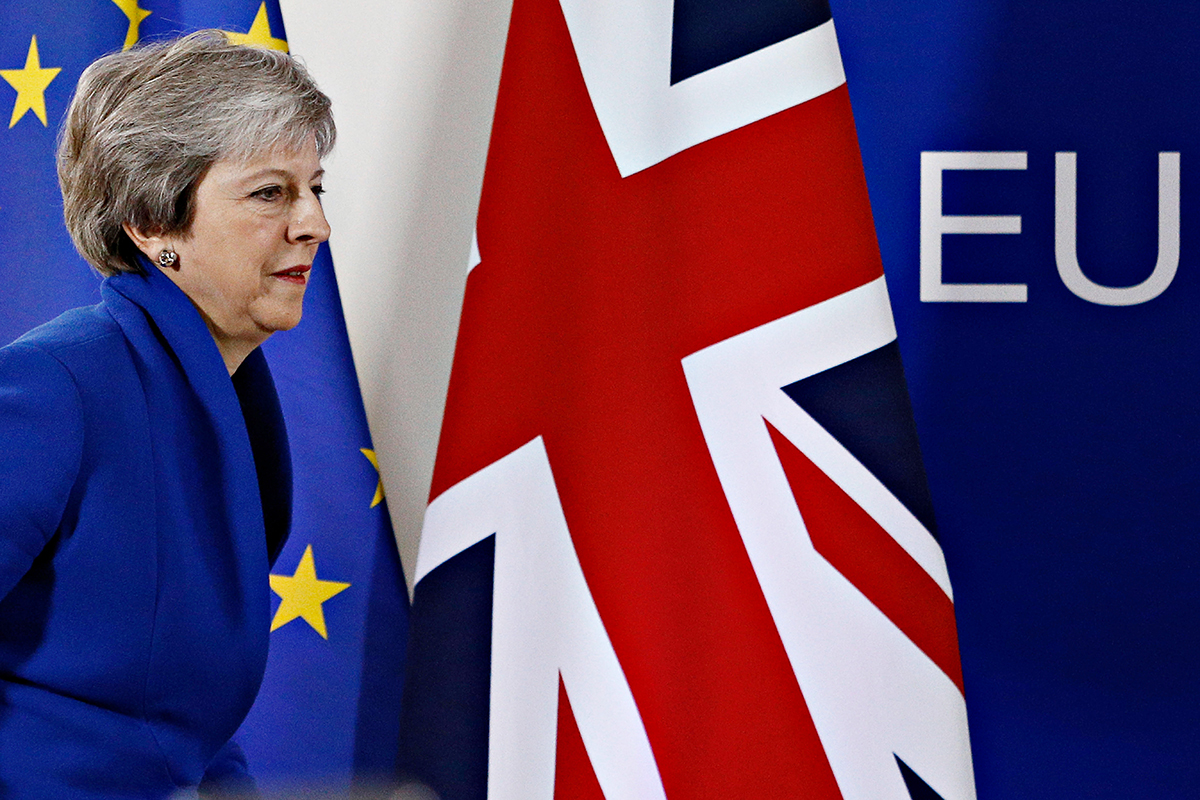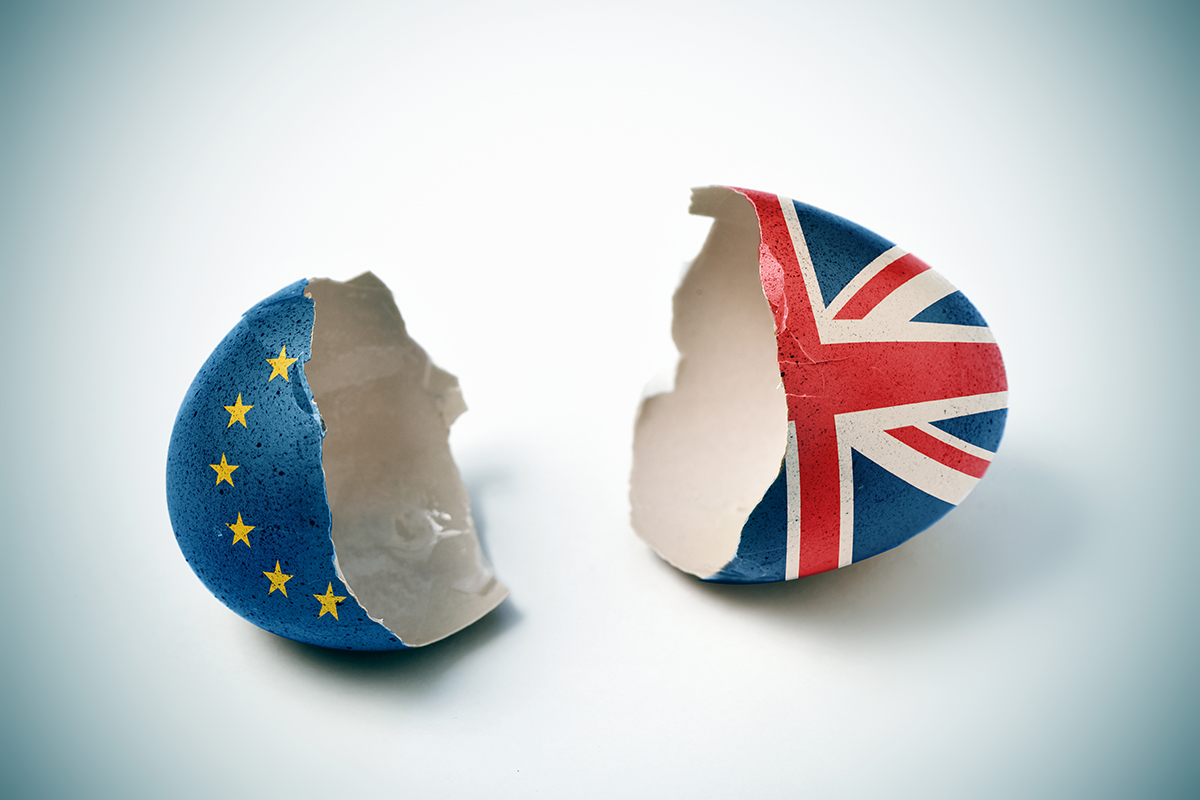Brexit
The Case for a Second Brexit Referendum Revisited: A Response to Madeline Grant
In the 2017 Act, Parliament simply gave permission to the Government to make the notification under Article 50, and negotiate a Withdrawal Agreement.

In her article “The Case Against a Second Referendum,” Madeline Grant has written an extensive critique of my “The Case For a Second Referendum.” Restrictions of space preclude a detailed consideration of the numerous objections she raises. I ignore altogether the personal comments she makes in the section portentiously titled “Bias,” and elsewhere, on the basis that they are irrelevant.
It is worth standing back and re-iterating the basic, and quite simple, position set out in my article—that the best argument for a second referendum is that the “Leave” proposition in the first referendum in 2016 was, necessarily, extremely general, and that the terms of Theresa May’s proposed Withdrawal Agreement are, by contrast, very specific. The Withdrawal Agreement provides a glide-path to a future which many Leave voters did not and indeed could not have anticipated in 2016.
The two most prominent advocates for the Leave proposition, Nigel Farage and Boris Johnson, have both said in terms that the Withdrawal Agreement is worse than staying in the EU. They also insist that the electorate not be permitted to express its agreement with them at the ballot box, by way of a referendum, an insistence putatively grounded on reverence for democratic values.
Kierkegaard said that purity of heart is to will one thing. In the political arena, the totalitarian notion that the populace as a whole does, or should, “will one thing” is best captured in Soviet propaganda posters, in which members of the proletariat all stare intently in one direction.
The critical question for those opposed to a second referendum (a category which includes Remainers as well as Brexiters) is whether or not they see the 2016 referendum as a democratic expression of approval for a particular position.

If they do, they need to identify the “one thing” which the electorate willed in 2016. And this is where they run into difficulties, simply as a result of the number of radically different variants of Leave. First, there is the government policy of remaining in the single market for goods but leaving it for services (the so-called Chequers proposal), which was unpopular when announced. It suffers from the problems that it has been rejected by the EU, that the UK is predominantly a services economy, and that the separation of goods and services is artificial. Second, the so-called Norway option, under which the UK remains part of the single market, is not popular, as it demotes the UK to “rule-taker” status. Third, the Labour Party proposal that the UK remain in a customs union but leave the single market (in unspecified ways), is also riddled with insuperable problems, many of which were pointed out by the Labour MP Barry Gardiner before his party adopted the policy of remaining in a Customs Union. Fourth, departing with no deal and trading on the terms of the World Trade Organization (WTO)—an organisation described by Deidre Brock MP in her excellent speech in the parliamentary debate about the Withdrawal Agreement as “a bear pit of contrasting interests and competing economies” in which “the sacred rules are little more than guidelines”—is also only the preference of a minority. This is not surprising. In comparison with the WTO, the rationality, clarity and enforceability of the rights conferred under EU law, and the democratic accountability of EU institutions, are nothing short of utopian.
So it is clear that as a matter of fact the 52 percent who voted Leave did not will any one of the different versions of Brexit. It would be quite remarkable if they had.
The next question is whether the democratic process is such that the electorate must be deemed to have willed one thing, such as the particular version of the Withdrawal Agreement (if any) that is eventually approved by Parliament, irrespective of whether a majority supported it. It might be said that in a general election the electorate is deemed to consent to the entire contents of the manifesto of the party which wins a majority of seats in parliament, whether or not voters for the majority party did in fact approve all of those contents. Those are the rules of that particular game. But those were not the rules of the 2016 referendum, which did not contain a manifesto but simply a question.
The implied rules of general elections do not assist Madeline Grant in relation to the 2017 election. The Tory and Labour manifestos contained contrasting versions of Brexit, the Labour one in particular advancing its version in exceptionally woolly terms, even by the standards of the genre. The Labour manifesto did insist on a “meaningful vote on the final Brexit deal”—by which it meant a vote in Parliament, not a second referendum—which had already been conceded by the government. This agreement between both parties on a meaningful vote on the Withdrawal Agreement means that any attempt to retrospectively read into the 2017 election some sort of electoral approval of the precise terms of the deal agreed 18 months later (or of no deal in the event of the Agreement being rejected by Parliament) is—quite apart from its inherent absurdity—doomed to failure.
The “one thing” school of thought leads nowhere. The only alternative is to accept that the Leave vote was always splintered into irreconcilable strands, and that there is nothing in our democratic system which compels us to overlook that fact. Furthermore, one or more of those strands can legitimately be tested in a second referendum.
Madeline Grant considers this splintering unfair because it would render the various Leave options less popular than Remain. But this argument presupposes that the Leave vote was a vote for a unitary position, which is the very point at issue.
My point with regard to the “betrayal” argument is that it is only possible for the Government to have betrayed the electorate if it had the power to implement Brexit, which the Gina Miller case showed that it does not. The fact that neither the electorate nor the Government could have predicted the outcome of the Supreme Court decision does not undermine but rather reinforces that point.
Ignoring, then, the Government’s promises, one must consider instead the intentions of Parliament. The only way to find out what Parliament intended when it passed the 2015 Referendum Act is by reading it, but if one does that one finds that it did not promise anything specific in the event of a Leave win. The advisory nature of the 2016 referendum is important because it underlies the open-ended nature of the process which Parliament initiated through the 2015 Act.
Furthermore, the decision of Parliament to trigger Article 50 in the EU (Notification of Withdrawal) Act 2017 did not amount to an expression of parliamentary approval for the future Withdrawal Agreement (or a no deal alternative). In the 2017 Act, Parliament simply gave permission to the Government to make the notification under Article 50, and negotiate a Withdrawal Agreement. The fact that no deal then became the default option, whereby the U.K. would leave the EU on March 29, 2019 regardless of whether or not a Withdrawal Agreement had been approved by Parliament, does not entail that Parliament has consented to a no deal Brexit, any more than it entails that Parliament consented to any specific form the Withdrawal Agreement might take.
I should stress that my case for a second referendum is not legalistic. The terms of the 2015 and 2017 Acts do not provide decisive arguments in favor of it. My argument is based on broader notions of political justice and legitimacy. The political argument must however be compatible with the legal backcloth, and in this instance it clearly is.
Madeline Grant makes the point that a vote for Scottish independence in the 2014 referendum would have left certain questions unanswered. This is true, but most people have a clear idea of what a nation state looks like. And that referendum was not about the many things the new Scottish state would do once it started to exist. By contrast, so far as Brexit is concerned, the sliding scale from no deal to a Norway-style agreement leaves open a vast range of possibilities.
She also argues that a second referendum would lead to a “huge loss of faith in the democratic process.” She does not address the question of why parliamentary approval of the Withdrawal Agreement would not also lead to such a loss of faith, given how little support it has among the electorate, including among Brexiters. This is particularly so given the extreme seriousness of a departure from the EU, and the fact that it would be very difficult for the U.K. to rejoin the EU after such a departure. By contrast, those advocating a “people’s vote” are not asking for Parliament to revoke Article 50 outright; merely that that option be put to the electorate to consider as an alternative to the Withdrawal Agreement.
Interestingly, Grant does not express a view one way or the other as to whether Parliament ought to approve the Withdrawal Agreement, a surprising omission in view of her criticisms of the absence of practical detail in my article. Nor does she address the legitimacy of a parliamentary decision to approve the Withdrawal Agreement, quite apart from its consequences. It would entail the implementation of a Brexit that, at present, is only approved by a small minority of the population. Democratic processes are one thing; entrapment is, or should be, another. The point was best made by Dr. Philip Lee MP in a recent parliamentary debate: “It would be a supreme act of political fraud to proceed with any practical or legally deliverable form of Brexit without getting the legitimacy of public consent.”






